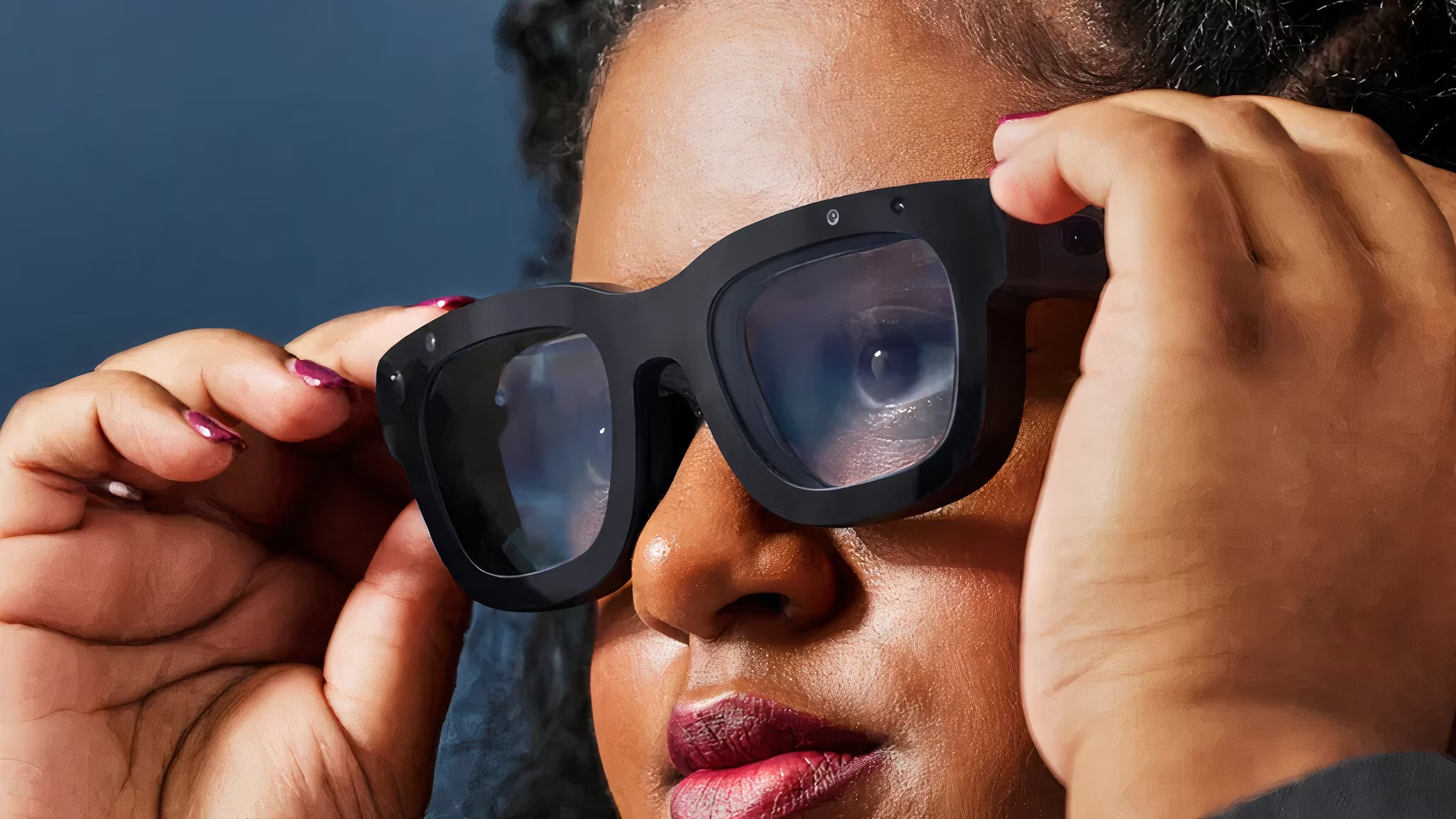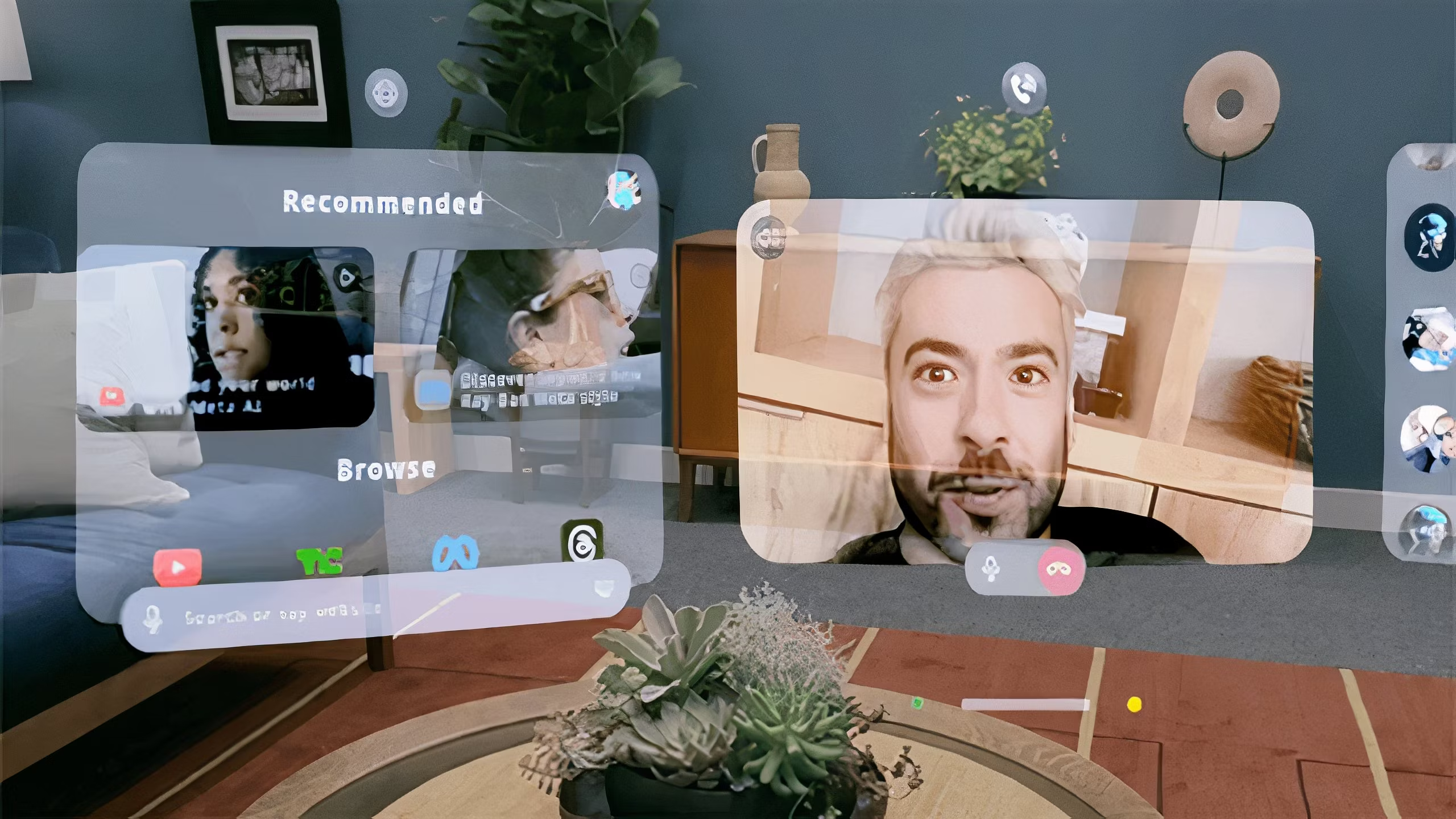Key Takeaways
- Meta introduced the prototype Orion AR glasses aiming to replace smartphones
- The lack of a killer app and safety concerns may hinder AR glasses’ success among consumers
- Tech companies like Meta may prioritize profit over consumer wants and needs
At Meta Connect 2024, Mark Zuckerberg introduced the Orion AR glasses, a prototype of a product that Meta hopes to bring to market at some point in the near future. In their current form, the glasses are seriously chunky and cost an insane amount to build, but there’s no denying that the technology is impressive.
There’s a bigger question, however. Meta wants these AR glasses to be the next computing platform, replacing the smartphone as the device that everyone uses to stay connected, but is that actually what consumers want? Do we really want a computer that we wear on our face? Do we want to walk down the street and see every other person we walk past wearing a pair of AR glasses? Is Meta giving consumers what we actually want, or is this simply another example of tech companies giving us a product that they think we should want?
Do we actually need AR glasses?
There’s still no killer app that can set them apart
Meta
It’s undoubtedly true that the Orion AR glasses showcased by Meta are technologically impressive. Packing all the tech required to produce a usable AR display into something the size of a (slightly chunky) pair of glasses is no mean feat. Meta has poured millions of dollars into the project, with each pair reportedly costing $10,000 to build.
The bigger question, however, is do we need them? Meta’s own article introducing Orion has some examples of how you can use them. The examples that they’ve given are as follows: playing a version of Pong, making a slightly washed out video call, and looking at a table full of ingredients to generate a recipe that would utilize them.
When you’ve got a prototype of a product you’ve spent millions developing, you want to showcase the best things that it can do. If this is it, then in terms of what they can do, AR glasses offer nothing that would make people want to ditch their phones.
None of those are things we can’t already do. We’ve been able to play Pong for over half a century. We can make video calls with our phones and computers, and unlike with the Orion glasses, the person we’re calling gets to see us, too. And you can already snap a photo of some ingredients with an AI chatbot app such as ChatGPT and then generate a recipe based on those ingredients. Literally the only difference here is that you can do this with something you have balanced on your face.
When you’ve got a prototype of a product you’ve spent millions developing, you want to showcase the best things that it can do. If this is it, then in terms of what they can do, AR glasses offer nothing that would make people want to ditch their phones.
For AR glasses to succeed they’ll need to be perfect
Having something on your face is very different to having it in your pocket
Meta
The biggest selling point for AR glasses seems to be that you don’t have to pull them out of your pocket to interact with them. Meta’s post even includes the following:
No need to pull out your phone, unlock it, find the right app and let your friend know you’re running late for dinner – you can do it all through your glasses.
Let’s say for a minute that this is something that consumers really want; a piece of tech that will make it marginally easier to send a message. If the alternative being offered is something you wear on your face, then it needs to be perfect. It can’t be too heavy, it can’t feel too uncomfortable, it can’t obstruct your field of view, or even impair it enough that people would rather not have them on for extended periods. It also needs a battery that last longer than an hour or two.
Phones have none of these concerns. They can be heavy or uncomfortable to hold, but it doesn’t make a massive difference, because before long they’re going back in your pocket or in your purse. AR glasses are meant to be worn for extended periods; if you have to take them out and put them on to send a message, then the benefit is lost.
Ideas that look good in sci-fi often fail in real life
Voice control is a prime example
Meta
The idea of AR glasses is great. Sci-fi makes it seem like having your own heads-up display is something that will definitely happen in the future. Or, if Back to the Future 2 is to be believed, in the past, with Marty and his family using AR glasses in a movie sequel set way back in 2015. Not everything that looks perfect in sci-fi turns out to be, however.
Watching Star Trek: The Next Generation made it seem inevitable that one day we would all be talking to our computers. Now that we can, it turns out that it’s not necessarily the best way to interact with technology after all. Devices that use Alexa or similar voice assistants are popular, but they haven’t become the default way to interact with our tech. We all have voice assistants on our phones, but I can’t recall a single instance of ever seeing someone using Siri or Google Assistant with their voice in public.
Google Glass is a worrying example
These wouldn’t be the first AR glasses that people didn’t want
AR glasses may seem like a sure-fire winner in sci-fi, but history has shown that maybe we don’t want them quite as much as we think. That’s because Meta isn’t the first major tech company that’s tried to make smart glasses a thing.
Google Glass is a prime example of a product that a company thought we wanted but turned out to be something we really didn’t. All the way back in 2013, early adopters could get their hands on a prototype of Google Glass, with the product going on general sale the following year. It did not go well.
The $1500 price tag didn’t help, and if Orion currently costs $10,000 per unit to make, you can bet the finished product will not be cheap. More than the price, however, it was the privacy concerns and social stigma that really killed Google Glass off. The product included a built-in camera, and it was difficult to know when this was in use, meaning that people were unsure whether they were being filmed. This led to the product being considered a little creepy, and the bizarre design only added to the ridicule, with early adopters being dubbed “glassholes.”
Google wasn’t the only AR glasses victim. Snap’s first launch of Spectacles cost the company almost $40 million, although Snap still continues to plow ahead with the product.
There are genuine safety concerns with AR glasses
We’re already overly distracted by our phones
Meta
There’s another major concern with AR glasses, and that’s safety. We often walk around with our heads buried in our phones, but all we need to do is look up, and we can see all the world around us. With AR glasses, this isn’t always the case.
When virtual screens are projected onto AR glasses, they’re translucent enough that you can see some of what’s behind them, but your view of the world is definitely significantly reduced. You can’t just look up from your screen like you can with a phone, because the screen is stuck on your face; you’re going to have to make some kind of interaction with the device in order to get to see the world in full again. By that time, it might be too late.
Many of the apps on our phones are designed to be addictive, and we already struggle to leave them alone. Countless accidents are caused every day by people who are distracted by looking at their phones when they’re driving. AR glasses will only make this worse; you could theoretically drive around wearing your AR glasses while watching a movie or making a video call, and that’s surely not going to end well. Crossing the road is also going to become a lot more dangerous. Even if you’re willing to take the risk yourself, it still puts the other people around you in danger.
Companies are still giving us what they want not what we need
Meta
Tech companies have one overriding goal: to make money. If a company spends millions developing a new product, you can bet your bottom dollar that they’re not doing it from an altruistic standpoint of wanting to improve the world. They’re doing it because they believe it can make them even more money in return.
Meta is at its core a software company, with apps such as Facebook and Instagram bringing in the majority of its money through advertising. It does have its toe in hardware, having acquired Oculus in order to sell VR headsets. However, Meta has often been held back by the big hardware companies, such as Apple, who dominate the smartphone market to the extent that Meta has to play by their rules. If Meta could build the device that replaces the smartphone, that would inevitably tip the scales very much in Meta’s favor.
Meta already has previous here; billions have been spent on developing and promoting the metaverse in the hopes of creating the next big computing platform that would move people away from their phones and into a virtual world controlled by Meta and its VR headsets. All the while, of course, trying to make as much money out of it as they can.
The metaverse did not take off like Meta hoped it would, because it was offering something that it thought people wanted, rather than something they actually did. It remains to be seen whether the Orion AR glasses are just another repeat of that expensive mistake.
Trending Products

Cooler Master MasterBox Q300L Micro-ATX Tower with Magnetic Design Dust Filter, Transparent Acrylic Side Panel, Adjustable I/O & Fully Ventilated Airflow, Black (MCB-Q300L-KANN-S00)

ASUS TUF Gaming GT301 ZAKU II Edition ATX mid-Tower Compact case with Tempered Glass Side Panel, Honeycomb Front Panel…

ASUS TUF Gaming GT501 Mid-Tower Computer Case for up to EATX Motherboards with USB 3.0 Front Panel Cases GT501/GRY/WITH Handle

be quiet! Pure Base 500DX ATX Mid Tower PC case | ARGB | 3 Pre-Installed Pure Wings 2 Fans | Tempered Glass Window | Black | BGW37

ASUS ROG Strix Helios GX601 White Edition RGB Mid-Tower Computer Case for ATX/EATX Motherboards with tempered glass, aluminum frame, GPU braces, 420mm radiator support and Aura Sync

CORSAIR 7000D AIRFLOW Full-Tower ATX PC Case â High-Airflow Front Panel â Spacious Interior â Easy Cable Management â 3x 140mm AirGuide Fans with PWM Repeater Included â Black














